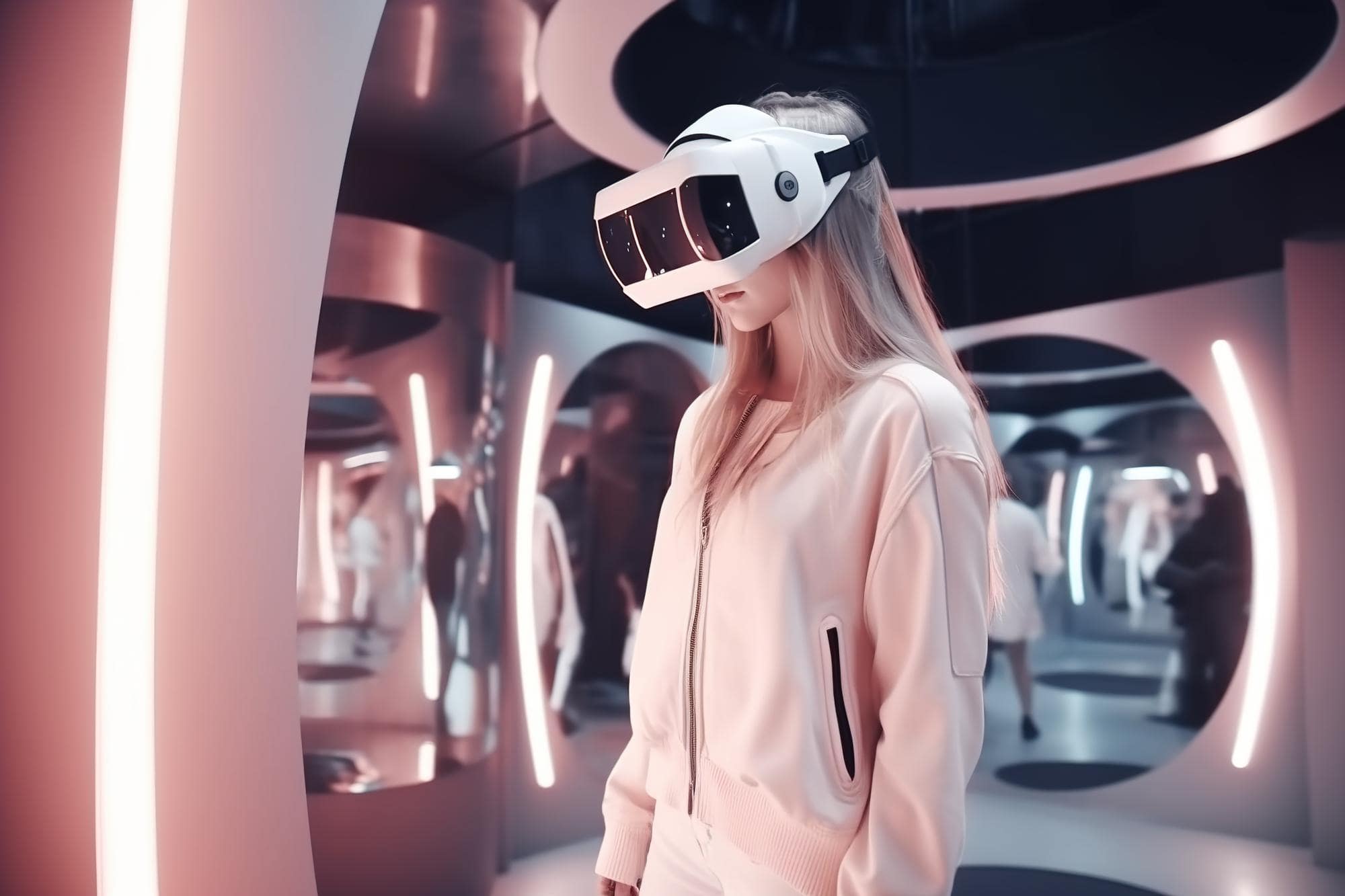Jun 20, 2024
Introduction
Virtual reality (VR) and augmented reality (AR) technologies are revolutionizing how we interact with the world, offering new possibilities in education, business, and entertainment. As we step into 2024, these technologies are set to redefine our reality. This article explores the latest trends, future projections, and the importance of collaborating with a VR development firm. Additionally, it highlights the growing interest in VR for training systems and forecasts significant advancements by 2024, with major brands and organizations entering the market. This guide serves as a valuable resource for businesses interested in leveraging immersive technology.
VR Innovations in 2024
1. Immersive Learning Experiences
Virtual reality is transforming traditional learning paradigms by transporting students to different eras or entirely new worlds. This immersive approach brings subjects like history, geography, and science to life, enhancing engagement and understanding. In medical education, VR allows students to perform complex surgical operations in a risk-free virtual environment. This capability represents a significant leap forward, potentially revolutionizing educational and training methodologies across various fields.
2. Hyper-Realistic Virtual Reality
The advent of hyper-realistic virtual reality is one of the most captivating developments of 2024. Advances in technology are blurring the lines between the virtual and real worlds, enabling VR experiences that mimic real-world sensations. Imagine feeling the rain on your skin, smelling a blooming meadow, or savoring a virtual feast—sensory VR takes immersion to unprecedented levels.
3. Growth of Social VR Platforms
Social VR platforms are reshaping how we connect, offering real-time interactions, virtual parties, concerts, and multiplayer games. These platforms are paving the way for a more inclusive and community-oriented future, expanding the scope of virtual reality beyond individual experiences.
4. VR Adoption in Business
Businesses are increasingly adopting VR for various purposes, including prototyping and design, employee training, and customer support. This trend highlights the potential of VR beyond entertainment and gaming. As VR technology becomes more affordable and accessible, its adoption in the business sector is expected to grow, emphasizing the importance of ongoing VR advancements.
5. AI Integration with Virtual Reality
The integration of artificial intelligence (AI) with VR is creating more personalized and intuitive user experiences. AI-driven VR environments can monitor user behavior and preferences, customizing the virtual world to meet individual needs. This fusion of AI and VR is crucial for developing dynamic and responsive virtual environments, marking a significant shift in the future of VR.
AR Innovations in 2024
1. Real-Time Text Detection and Translation
AR technology now allows users to point their cameras at text to receive real-time translations, making communication and information access more seamless and efficient.
2. Enhanced Object Identification and Labeling
Machine vision capabilities in AR are advancing, enabling not just identification but also interaction with virtual objects layered over the real world. This technology is particularly useful for training, product visualization, and remote assistance.
3. Lifelike Human Models and Object Scans
AI advancements have propelled AR beyond simple facial recognition to the reconstruction of lifelike 3D models of faces and objects. These models can be used as avatars or assets in virtual environments, enhancing realism and engagement.
4. AR in Gaming
Originally a fun novelty, mobile AR has evolved into a powerful tool for various tasks, including navigation and scene analysis. Many companies are now leveraging mobile AR for product visualization, training, and remote support, highlighting its growing commercial value.
5. AR in Wearables
The launch of Apple's Vision Pro marks a significant milestone in wearable AR, offering users high-end headsets for creating displays and operating apps from any location. Meta's Quest 3 and Quest Pro also represent affordable AR headsets with applications like PianoVision for mixed-reality piano learning.
The Metaverse: The VR Epic of 2024
The metaverse, introduced by Facebook CEO Mark Zuckerberg in 2021, has evolved into a vast, interconnected ecosystem of VR applications by 2024. Major companies like Tencent, Disney, and Microsoft have also entered this virtual space. The metaverse replicates everyday activities in a virtual realm, creating a seamless experience that integrates work, education, and leisure. This digital universe is not just a playground but a complex environment shaping the future of VR by merging digital and tangible experiences.
Conclusion
The future of VR and AR is closely intertwined with AI, promising more dynamic and personalized experiences. While AI's popularity and initial excitement are high, its potential to enhance AR and VR experiences is likely to persist. This is particularly true as AR proves its commercial value beyond gaming and entertainment. As we look to the future, the continuous evolution of these immersive technologies will undoubtedly open new possibilities and applications across various sectors.





